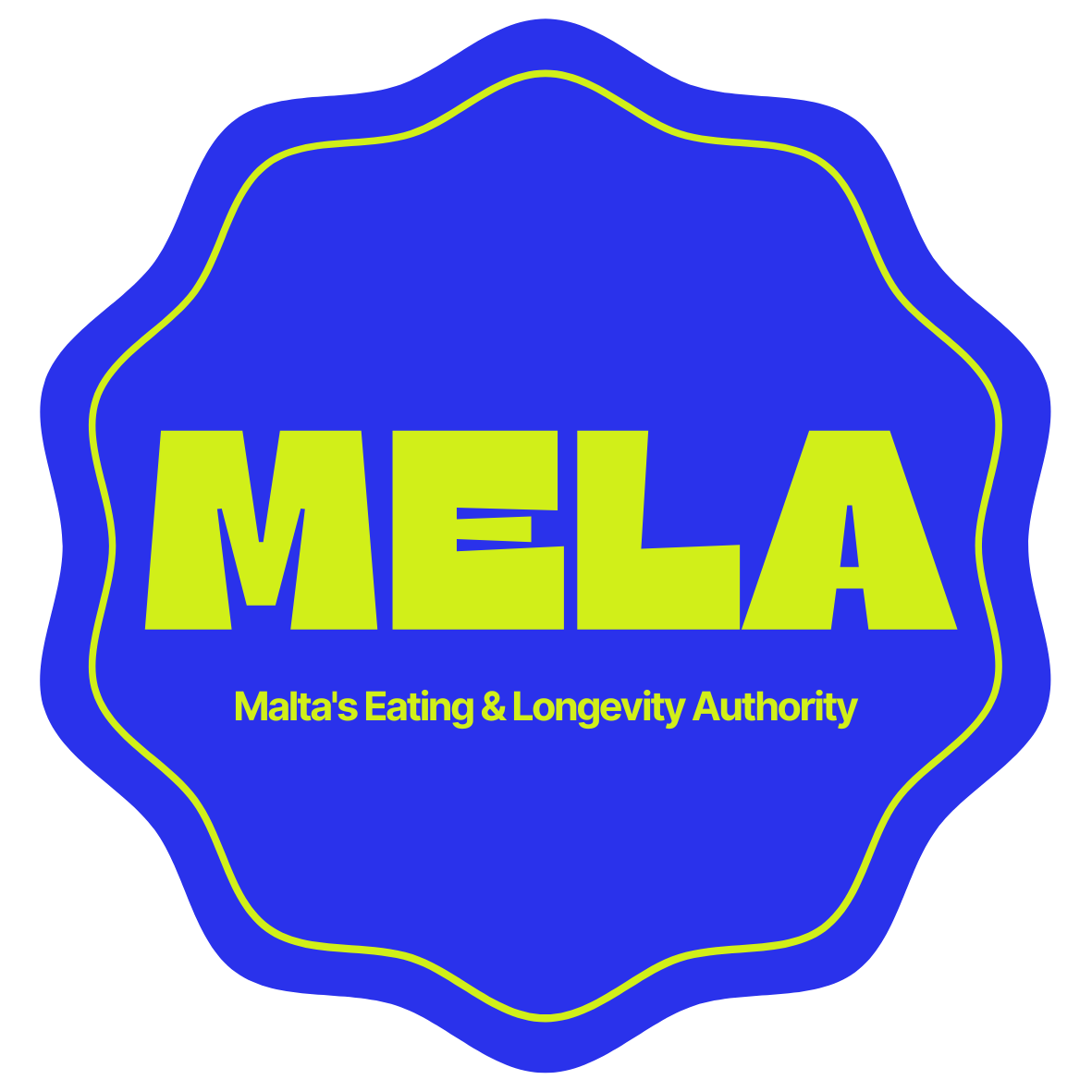Are broad beans the health-conscious superstars that Malta has been quietly cultivating all along? While protein-packed alternatives hog the spotlight globally, Malta knows the value of the humble broad bean, a crop with roots deeply embedded in Mediterranean traditions and a rising star in the world of sustainable farming. This article unearths the vast potential of broad beans, from their extraordinary nutritional profile to their role in combating Malta’s agricultural challenges, making them a must-include on your plate and on your radar.
Broad Beans in Malta: Bursting with Nutritional Goodness
Broad beans, or “ful,” are more than just a local staple in Malta; they are nutritional powerhouses. Packed with 26-28% protein (dry weight), approximately 25-30g of fiber per 100g, and a high folate content (423 micrograms in 100g cooked), broad beans are a natural choice for health-conscious eaters. Folate, in particular, plays a key role in supporting cell regeneration, reducing inflammation, and promoting a healthy cardiovascular system. If you’re following a Mediterranean diet, broad beans seamlessly fit into its nutrient-dense, health-boosting principles.
Here’s why they should grace your meals:
- Protein for Strength: Ideal for vegetarians and those seeking plant-based protein.
- Heart Health Benefits: The high folate and fiber lower cholesterol and improve arterial health.
- Weight Management: Fiber-rich broad beans provide lasting satiety, helping you avoid unhealthy snacking.
- Longevity Booster: A core component of the Mediterranean diet, their anti-inflammatory properties make them a longevity staple.
Add Broad Beans to Your Healthy Diet!
Traditionally enjoyed in Broad Bean Hummus, Maltese Minestra Soup, or even roasted with olive oil and sea salt, they are incredibly versatile. If you’re looking for more recipe inspiration, watch this concise yet enriching video about Mediterranean cooking hacks:
![MELA AI]
The Agriculture Edge: Sustainability Meets Resilience
Broad beans thrive on low water demands (350-400mm annually), making them particularly suited to Malta’s semi-arid climate. But they don’t just endure the environment, they enhance it. Through symbiotic relationships with Rhizobium bacteria, they contribute to nitrogen fixation in the soil, reducing the need for synthetic fertilizers and contributing roughly 150-200 kg of naturally available nitrogen per hectare annually.
Bridging Sustainability Gaps in Malta
Malta’s agricultural sector faces numerous challenges, including climate pressures and plastic waste in farming processes. Broad bean cultivation offers a way forward. From mulching films to irrigation, projects like those explored in this agricultural plastics research are working to ensure reduction of waste while maximizing yield, making agricultural practices not only eco-friendly but highly efficient.
Even their drought resilience highlights the crop’s role in Malta’s water conservation strategies, a critical factor amid rising Mediterranean climate challenges. By growing broad beans, Maltese farmers are not just cultivating food but solutions, solutions that could benefit the next generation.
.png)
Environmental and Economic Benefits
Environmental Impact: A Crop that Gives Back
Broad beans are an agricultural superhero. By requiring fewer synthetic fertilizers and conserving water while still producing average harvest yields of 2.5-3.2 tonnes per hectare, they play a part in reducing greenhouse emissions and enhancing soil health. The use of broad beans aligns perfectly with goals laid out in Malta’s ongoing EU initiatives for sustainable farming as discussed in this European agricultural development outlook.
Economic Boom: Malta’s Market Prices
In September 2026, market prices for fresh broad beans range between €3.20 and €4.50 per kilogram, making them both affordable and valuable as an export commodity. With 180 hectares of Malta’s arable land dedicated to legume production, broad beans are poised to become a significant contributor to the island’s moderate growth in specialty crops.
Recipe Insights: Explore Broad Bean-Based Creations!
Malta takes pride in blending tradition with innovation. Here are some not-to-miss recipes you can try:
Maltese Broad Bean Fritters (Ful Patties)
Ingredients: Cooked and mashed broad beans, garlic, parsley, mint, a pinch of smoked paprika, flour, and olive oil for frying.
Nutritional Benefits: Protein-packed with under 200 calories per patty!Easy Broad Bean Dip (Lighter Hummus)
Ingredients: Fresh broad beans, tahini, garlic, lemon juice, salt, and extra virgin olive oil.
Serve it with: Maltese ftira bread or fresh vegetables for a low-carb snack.
![MELA AI]Broad Bean and Wild Asparagus Salad
Garnished with almonds and grated ġbejna cheese, this dish is perfect for a quick, nutritious bite.
.png)
Tips for Buying and Cooking Broad Beans in Malta
- Buy fresh, local produce: Maltese markets like the Birgu Farmer’s Market offer freshly harvested pods.
- Avoid overcooking! Broad beans are their sweetest and most nutrient-rich when blanched for just 2-3 minutes.
- Pair with olive oil: This traditional Mediterranean fat enhances nutrient absorption while tasting amazing.
Seasonal Peaks: Maximizing Your Broad Bean Experience
Broad beans in Malta are at their peak between March and May, making them a springtime delight. Celebrate seasonal eating and reduce your carbon footprint with freshly harvested legumes during this period.

Key Takeaways: Why Broad Beans Are a Maltese Gem
| Feature | Broad Bean Details |
|---|---|
| Nutritional Power | 26-28% protein per dry weight, high fiber, and folate suitable for health-conscious diets. |
| Eco-Friendliness | Nitrogen-fixing capabilities reduce fertilizer use and promote sustainable farming. |
| Drought Tolerance | Requires significantly less water (350-400mm annually) than many alternatives. |
| Economic Potential | Market range of €3.20-4.50/kg aligns with Malta’s growth in special interest crops. |
| Culinary Flexibility | Delicious paired with Mediterranean ingredients – from salads to fritters and dips. |
Broad Beans, the Sustainable Superfood You Never Knew You Needed!
Broad beans don’t just offer tantalizing flavors, they represent sustainability, health, and economic potential wrapped in a single pod. With initiatives like MELA AI helping promote the integration of nutrient-dense crops into the Maltese food ecosystem (read about how we’re tackling this here), the future for broad beans has never looked so promising. Whether enjoyed as a health-conscious snack or part of a full-course meal, broad beans deserve the spotlight.
Looking for more ways to connect with Malta’s vibrant food scene? Explore these top 10 outlets in Mellieha, where fresh market ingredients turn every dish into a masterpiece:
Top 10 Family Friendly Restaurants in Mellieha
Top 10 Fine Dining Restaurants in Mellieha
Top 10 Romantic Restaurants in Mellieha
Conclusion
Broad beans in Malta are more than just a staple of traditional cooking; they are a symbol of resilience, sustainability, and health. Their unparalleled nutritional profile, environmental benefits, and economic potential make them a small-but-mighty contributor to Malta’s agricultural landscape and a perfect addition to the modern Mediterranean diet. Packed with protein, fiber, and folate, these legumes check all the boxes for health-conscious foodies, while their nitrogen-fixing capability and drought resilience serve as a beacon of sustainable agriculture for Malta’s future.
Whether you’re a farmer, a restaurateur, or a curious diner, the story of broad beans offers inspiration and opportunity. By incorporating this superfood into your meals, you’re not only boosting your own well-being but also supporting local farmers and contributing to eco-friendly farming practices.
Discover More with MELA AI
Looking to explore Malta’s rich and diverse culinary landscape? MELA AI is your ultimate guide to health-conscious dining on the islands. It empowers diners to make informed choices by recognizing restaurants that prioritize healthy meals with the prestigious MELA sticker. With tailored branding packages and market strategies, MELA AI also supports restaurant owners in growing their business while catering to the rising demand for nutritious dining options.
Explore. Savor. Thrive. Whether you’re a food enthusiast or someone prioritizing wellness, discover the best MELA-approved restaurants here and elevate your dining experience. After all, with Malta’s abundant agricultural treasures like broad beans, why settle for anything less than the perfect blend of health and flavor?
FAQ on Broad Beans in Malta: Sustainability, Nutrition, and Culinary Potential
What makes broad beans a superfood in the Mediterranean diet?
Broad beans are a staple in Mediterranean diets, including Malta’s, due to their impressive nutritional profile. They contain 26-28% protein (dry weight) and are an excellent plant-based protein source, especially for vegetarians and health-conscious eaters. Their high fiber content (25-30g per 100g) aids digestion, supports weight management, and improves gut health. Broad beans are also rich in folate (423 micrograms per 100g cooked), a nutrient essential for cell regeneration, cardiovascular health, and reducing inflammation. Whether in soups, dips, or salads, broad beans are a delicious, nutrient-packed addition to any plate, supporting overall longevity and vitality.
Why are broad beans considered environmentally sustainable to grow in Malta?
Broad beans excel in sustainability because they thrive in Malta’s semi-arid climate with low water needs (350-400mm annually). Their ability to fix nitrogen naturally through symbiotic relationships with Rhizobium bacteria reduces reliance on synthetic fertilizers. Broad beans contribute an estimated 150-200 kg of nitrogen per hectare annually, enriching the soil and improving its health for subsequent crops. From minimizing water usage to enhancing soil nutrients, these environmental benefits make broad beans a cornerstone of sustainable agriculture in Malta, aligning with the country’s EU sustainability goals.
How do broad beans support Malta’s agricultural economy?
Broad beans are both economically feasible and agriculturally significant in Malta. With market prices ranging from €3.20-€4.50/kg in 2026, they provide excellent value for both local consumption and export opportunities. Approximately 180 hectares of Maltese farmland are dedicated to legume cultivation, including broad beans, with an average yield of 2.5-3.2 tonnes per hectare. Their affordability and role as a specialty crop contribute to moderate growth in Malta’s agricultural income.
What are the best broad bean recipes for health-conscious eaters?
Health-conscious eaters can enjoy broad beans in several versatile and delicious recipes:
- Broad Bean Hummus: A lighter take on traditional hummus using blended broad beans, tahini, garlic, lemon, and olive oil.
- Maltese Minestra Soup: This hearty vegetable soup features broad beans for added protein and fiber.
- Wild Asparagus and Broad Bean Salad: Garnished with almonds and local ġbejna cheese.
To elevate your cooking skills, try these broad-bean-based Mediterranean recipes featured here.
How does MELA AI help diners discover healthy dishes with broad beans?
The MELA AI directory empowers diners across Malta and Gozo to find restaurants offering delicious and nutrient-rich meals, including creative broad bean dishes. Through the MELA sticker, diners can quickly identify restaurants committed to offering healthier menu options. Whether it’s a vegetarian-friendly dip or a Maltese culinary creation, MELA AI brings health-conscious dining closer to you.
Why is growing broad beans critical for water conservation in Malta?
Broad beans are ideal for preserving Malta’s limited water resources, requiring only 350-400mm of water annually. This makes them significantly more water-efficient compared to other protein crops. As Malta faces increased pressure from climate change, growing drought-resistant crops like broad beans supports water conservation efforts while maintaining agricultural output and food security. Broad beans are a win-win for both Maltese farmers and the environment.
Can broad beans support a more sustainable dining trend in Malta?
Yes, absolutely. Integrating broad beans into Malta’s culinary scene supports both health-conscious eating and environmental sustainability. Restaurants and home cooks alike can promote this by offering innovative broad bean dishes that align with Mediterranean diet principles. Platforms like MELA AI play a pivotal role in fostering this trend by spotlighting restaurants committed to sustainable, healthy dining, ensuring both locals and tourists can access nutrient-dense meals that benefit the planet.
When is the best time to enjoy fresh broad beans in Malta?
Broad beans are at their peak between March and May, making spring the ideal season for enjoying them at their freshest. Seasonal eating reduces your carbon footprint while ensuring maximum taste and nutrition. Visit local markets like the Birgu Farmer’s Market during these months to stock up on freshly harvested pods at their finest quality.
How can restaurants in Malta use the MELA Index to promote broad bean-based dishes?
By obtaining a MELA sticker, restaurants can showcase their dedication to health-conscious and sustainable cuisine. Broad bean dishes, with their high protein, fiber, and nutrient content, perfectly align with MELA’s principles. The MELA platform offers branding, insights, and visibility for restaurants innovating with Mediterranean superfoods like broad beans. Explore MELA AI’s branding packages to elevate your restaurant’s reputation and attract health-focused diners.
What advice do you have for cooking or preparing broad beans at home?
Preparing broad beans is simple yet rewarding. For maximum flavor and nutrients:
- Peel fresh beans carefully: Remove the outer pod and the waxy layer covering each bean post-cooking.
- Don’t overcook: Blanch fresh beans for 2-3 minutes to preserve their vibrant green color and nutrients.
- Pair with olive oil: Use high-quality Maltese extra virgin olive oil to enhance absorption of fat-soluble nutrients like folate.
By following these tips, you’ll elevate the taste and nutritional value of broad bean dishes at home.
By embracing broad beans on your plate and supporting sustainable agriculture, not only do you nourish yourself but contribute to a healthier planet. Don’t forget to explore MELA AI for restaurants leading the way in healthy Maltese cuisine!
Check out another article that you might like:
The Smoky Secret to Healthy Indulgence in Malta: Why Peaty Scotch is the Next Big Thing
About the Author
Violetta Bonenkamp, also known as MeanCEO, is an experienced startup founder with an impressive educational background including an MBA and four other higher education degrees. She has over 20 years of work experience across multiple countries, including 5 years as a solopreneur and serial entrepreneur. Throughout her startup experience she has applied for multiple startup grants at the EU level, in the Netherlands and Malta, and her startups received quite a few of those. She’s been living, studying and working in many countries around the globe and her extensive multicultural experience has influenced her immensely.
Violetta is a true multiple specialist who has built expertise in Linguistics, Education, Business Management, Blockchain, Entrepreneurship, Intellectual Property, Game Design, AI, SEO, Digital Marketing, cyber security and zero code automations. Her extensive educational journey includes a Master of Arts in Linguistics and Education, an Advanced Master in Linguistics from Belgium (2006-2007), an MBA from Blekinge Institute of Technology in Sweden (2006-2008), and an Erasmus Mundus joint program European Master of Higher Education from universities in Norway, Finland, and Portugal (2009).
She is the founder of Fe/male Switch, a startup game that encourages women to enter STEM fields, and also leads CADChain, and multiple other projects like the Directory of 1,000 Startup Cities with a proprietary MeanCEO Index that ranks cities for female entrepreneurs. Violetta created the “gamepreneurship” methodology, which forms the scientific basis of her startup game. She also builds a lot of SEO tools for startups. Her achievements include being named one of the top 100 women in Europe by EU Startups in 2022 and being nominated for Impact Person of the year at the Dutch Blockchain Week. She is an author with Sifted and a speaker at different Universities. Recently she published a book on Startup Idea Validation the right way: from zero to first customers and beyond, launched a Directory of 1,500+ websites for startups to list themselves in order to gain traction and build backlinks and is building MELA AI to help local restaurants in Malta get more visibility online.
For the past several years Violetta has been living between the Netherlands and Malta, while also regularly traveling to different destinations around the globe, usually due to her entrepreneurial activities. This has led her to start writing about different locations and amenities from the POV of an entrepreneur. Here’s her recent article about the best hotels in Italy to work from.



